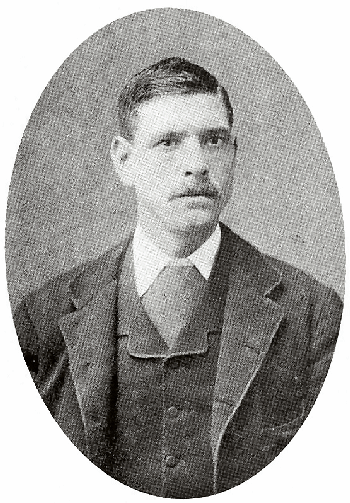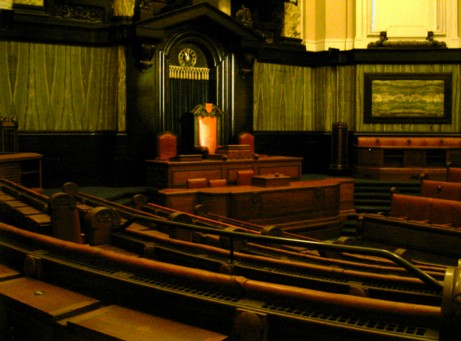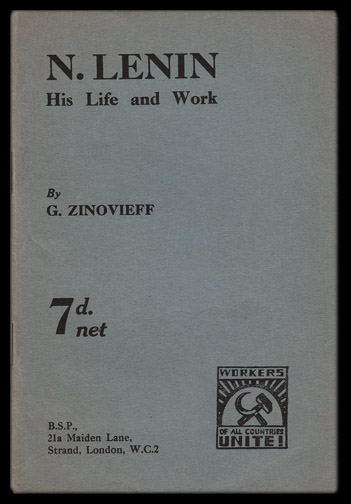|
William James Thorne
William James Thorne CBE (4 October 1857 – 2 January 1946) was a British trade unionist, activist and one of the first Labour Members of Parliament. Early years Thorne was born in Hockley, Birmingham, on 8 October 1857. His father and other relatives worked as brickmakers. Thorne's father died in a fight when Thorne was just seven years old. Thorne began working at the age of six, turning a wheel for a rope and twine spinner, working from six in the morning to six at night, with half an hour's break for breakfast and an hour for dinner. Thorne recalls that when the spinner wanted to reduce his wages from 2 shillings and 6 pence to 2 shillings, he "went on strike" and never returned to the job. The family was on poor relief. Thorne's mother and three sisters worked all hours sewing hooks and eyes. "It was here I had intimate experience with sweated labour", he commented without irony. Thorne took a job with his uncle at a brick and tile works, and later, at another brick ... [...More Info...] [...Related Items...] OR: [Wikipedia] [Google] [Baidu] |
General Secretary
Secretary is a title often used in organizations to indicate a person having a certain amount of authority, power, or importance in the organization. Secretaries announce important events and communicate to the organization. The term is derived from the Latin word , "to distinguish" or "to set apart", the passive participle () meaning "having been set apart", with the eventual connotation of something private or confidential, as with the English word ''secret.'' A was a person, therefore, overseeing business confidentially, usually for a powerful individual (a king, pope, etc.). The official title of the leader of most communist and socialist political parties is the "General Secretary of the Central Committee" or "First Secretary of the Central Committee". When a communist party is in power, the general secretary is usually the country's ''de facto'' leader (though sometimes this leader also holds state-level positions to monopolize power, such as a presidency or premiership ... [...More Info...] [...Related Items...] OR: [Wikipedia] [Google] [Baidu] |
Greater London Council
The Greater London Council (GLC) was the top-tier local government administrative body for Greater London from 1965 to 1986. It replaced the earlier London County Council (LCC) which had covered a much smaller area. The GLC was dissolved in 1986 by the Local Government Act 1985 and its powers were devolved to the London boroughs and other entities. A new administrative body, known as the Greater London Authority (GLA), was established in 2000. Creation The GLC was established by the London Government Act 1963, which sought to create a new body covering more of London rather than just the inner part of the conurbation, additionally including and empowering newly created London boroughs within the overall administrative structure. In 1957 a Royal Commission on Local Government in Greater London had been set up under Edwin Herbert, Baron Tangley, Sir Edwin Herbert, and this reported in 1960, recommending the creation of 52 new London boroughs as the basis for local government. It ... [...More Info...] [...Related Items...] OR: [Wikipedia] [Google] [Baidu] |
1945 Dissolution Honours
The 1945 Dissolution Honours List was issued on 7 June to mark the dissolution of the United Kingdom parliament prior to the 1945 general election. The recipients of honours are displayed here as they were styled before their new honour, and arranged by honour, with classes (Knight, Knight Grand Cross, etc.) and then divisions (Military, Civil, etc.) as appropriate. Peers Viscount *The Right Honourable Christopher, Baron Addison Leader of the Labour Party in the House of Lords since 1940; for political and public services. *The Right Honourable George Lambert Member of Parliament for South Molton 1891-1924 and since 1929; for political and public services. Baron *Captain The Right Honourable Harold Harington Balfour Minister Resident in West Africa since 1944. Parliamentary Under-Secretary of State for Air, May, 1938-1944. Member of Parliament for the Isle of Thanet since 1929. *Colonel The Right Honourable Sir George Loyd Courthope Parliamentary Forestry Commissioner ... [...More Info...] [...Related Items...] OR: [Wikipedia] [Google] [Baidu] |
Privy Council Of The United Kingdom
The Privy Council (PC), officially His Majesty's Most Honourable Privy Council, is a formal body of advisers to the sovereign of the United Kingdom. Its membership mainly comprises senior politicians who are current or former members of either the House of Commons or the House of Lords. The Privy Council formally advises the sovereign on the exercise of the Royal Prerogative, and as a body corporate (as King-in-Council) it issues executive instruments known as Orders in Council which, among other powers, enact Acts of Parliament. The Council also holds the delegated authority to issue Orders of Council, mostly used to regulate certain public institutions. The Council advises the sovereign on the issuing of Royal Charters, which are used to grant special status to incorporated bodies, and city or borough status to local authorities. Otherwise, the Privy Council's powers have now been largely replaced by its executive committee, the Cabinet of the United Kingdom. Certai ... [...More Info...] [...Related Items...] OR: [Wikipedia] [Google] [Baidu] |
Commander Of The Order Of The British Empire
The Most Excellent Order of the British Empire is a British order of chivalry, rewarding contributions to the arts and sciences, work with charitable and welfare organisations, and public service outside the civil service. It was established on 4 June 1917 by King George V and comprises five classes across both civil and military divisions, the most senior two of which make the recipient either a knight if male or dame if female. There is also the related British Empire Medal, whose recipients are affiliated with, but not members of, the order. Recommendations for appointments to the Order of the British Empire were originally made on the nomination of the United Kingdom, the self-governing Dominions of the Empire (later Commonwealth) and the Viceroy of India. Nominations continue today from Commonwealth countries that participate in recommending British honours. Most Commonwealth countries ceased recommendations for appointments to the Order of the British Empire when they cre ... [...More Info...] [...Related Items...] OR: [Wikipedia] [Google] [Baidu] |
1945 United Kingdom General Election
The 1945 United Kingdom general election was a national election held on 5 July 1945, but polling in some constituencies was delayed by some days, and the counting of votes was delayed until 26 July to provide time for overseas votes to be brought to Britain. The governing Conservative Party sought to maintain its position in Parliament but faced challenges from public opinion about the future of the United Kingdom in the post-war period. British Prime Minister Winston Churchill proposed to call for a general election in Parliament, which passed with a majority vote less than two months after the conclusion of the Second World War in Europe. The election's campaigning was focused on leadership of the country and its postwar future. Churchill sought to use his wartime popularity as part of his campaign to keep the Conservatives in power after a wartime coalition had been in place since 1940 with the other political parties, but he faced questions from public opinion surrounding ... [...More Info...] [...Related Items...] OR: [Wikipedia] [Google] [Baidu] |
Plaistow (UK Parliament Constituency)
Plaistow was a borough constituency returning a single Member of Parliament to the House of Commons of the Parliament of the United Kingdom through the first-past-the-post voting system. The constituency was one of four divisions of the Parliamentary Borough of West Ham, which had at the time the same boundaries as the County Borough of West Ham. Although administratively separate since 1889, the area was formally part of the county of Essex; since 1965 it has been part of the London Borough of Newham in Greater London. The creation of the constituency was recommended by the Boundary Commission in a report issued in 1917, and formally created by the Representation of the People Act 1918. It came into existence at the 1918 general election. Its first member was Labour's Will(iam) Thorne who won with an impressive 94.9% of the popular vote, a record for an English parliamentary seat held to this day. As the borough of West Ham had only 120,586 electors on 15 October 1946, the rele ... [...More Info...] [...Related Items...] OR: [Wikipedia] [Google] [Baidu] |
October Revolution
The October Revolution,. officially known as the Great October Socialist Revolution. in the Soviet Union, also known as the Bolshevik Revolution, was a revolution in Russia led by the Bolshevik Party of Vladimir Lenin that was a key moment in the larger Russian Revolution of 1917–1923. It was the second revolutionary change of government in Russia in 1917. It took place through an armed insurrection in Petrograd (now Saint Petersburg) on . It was the precipitating event of the Russian Civil War. The October Revolution followed and capitalized on the February Revolution earlier that year, which had overthrown the Tsarist autocracy, resulting in a liberal provisional government. The provisional government had taken power after being proclaimed by Grand Duke Michael, Tsar Nicholas II's younger brother, who declined to take power after the Tsar stepped down. During this time, urban workers began to organize into councils (soviets) wherein revolutionaries criticized the pro ... [...More Info...] [...Related Items...] OR: [Wikipedia] [Google] [Baidu] |
Soviet Union
The Soviet Union,. officially the Union of Soviet Socialist Republics. (USSR),. was a transcontinental country that spanned much of Eurasia from 1922 to 1991. A flagship communist state, it was nominally a federal union of fifteen national republics; in practice, both its government and its economy were highly centralized until its final years. It was a one-party state governed by the Communist Party of the Soviet Union, with the city of Moscow serving as its capital as well as that of its largest and most populous republic: the Russian SFSR. Other major cities included Leningrad (Russian SFSR), Kiev (Ukrainian SSR), Minsk ( Byelorussian SSR), Tashkent (Uzbek SSR), Alma-Ata (Kazakh SSR), and Novosibirsk (Russian SFSR). It was the largest country in the world, covering over and spanning eleven time zones. The country's roots lay in the October Revolution of 1917, when the Bolsheviks, under the leadership of Vladimir Lenin, overthrew the Russian Provisional Government ... [...More Info...] [...Related Items...] OR: [Wikipedia] [Google] [Baidu] |
British Socialist Party
The British Socialist Party (BSP) was a Marxist political organisation established in Great Britain in 1911. Following a protracted period of factional struggle, in 1916 the party's anti-war forces gained decisive control of the party and saw the defection of its pro-war right wing. After the victory of the Bolshevik Revolution in Russia at the end of 1917 and the termination of the First World War the following year, the BSP emerged as an explicitly revolutionary socialist organisation. It negotiated with other radical groups in an effort to establish a unified communist organisation, an effort which culminated in August 1920 with the establishment of the Communist Party of Great Britain. The youth organisation the Young Socialist League was affiliated with the party. Organizational history Formative period (1911–1914) The founding conference which established the British Socialist Party was called by the Social Democratic Party (SDP), a group best remembered to history by i ... [...More Info...] [...Related Items...] OR: [Wikipedia] [Google] [Baidu] |
1906 United Kingdom General Election
Nineteen or 19 may refer to: * 19 (number), the natural number following 18 and preceding 20 * one of the years 19 BC, AD 19, 1919, 2019 Films * ''19'' (film), a 2001 Japanese film * ''Nineteen'' (film), a 1987 science fiction film Music * 19 (band), a Japanese pop music duo Albums * ''19'' (Adele album), 2008 * ''19'', a 2003 album by Alsou * ''19'', a 2006 album by Evan Yo * ''19'', a 2018 album by MHD * ''19'', one half of the double album ''63/19'' by Kool A.D. * ''Number Nineteen'', a 1971 album by American jazz pianist Mal Waldron * ''XIX'' (EP), a 2019 EP by 1the9 Songs * "19" (song), a 1985 song by British musician Paul Hardcastle. * "Nineteen", a song by Bad4Good from the 1992 album '' Refugee'' * "Nineteen", a song by Karma to Burn from the 2001 album ''Almost Heathen''. * "Nineteen" (song), a 2007 song by American singer Billy Ray Cyrus. * "Nineteen", a song by Tegan and Sara from the 2007 album '' The Con''. * "XIX" (song), a 2014 song by Slipk ... [...More Info...] [...Related Items...] OR: [Wikipedia] [Google] [Baidu] |





